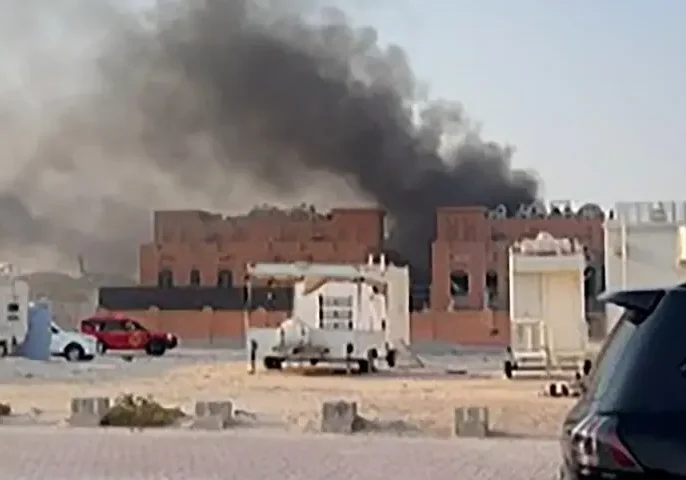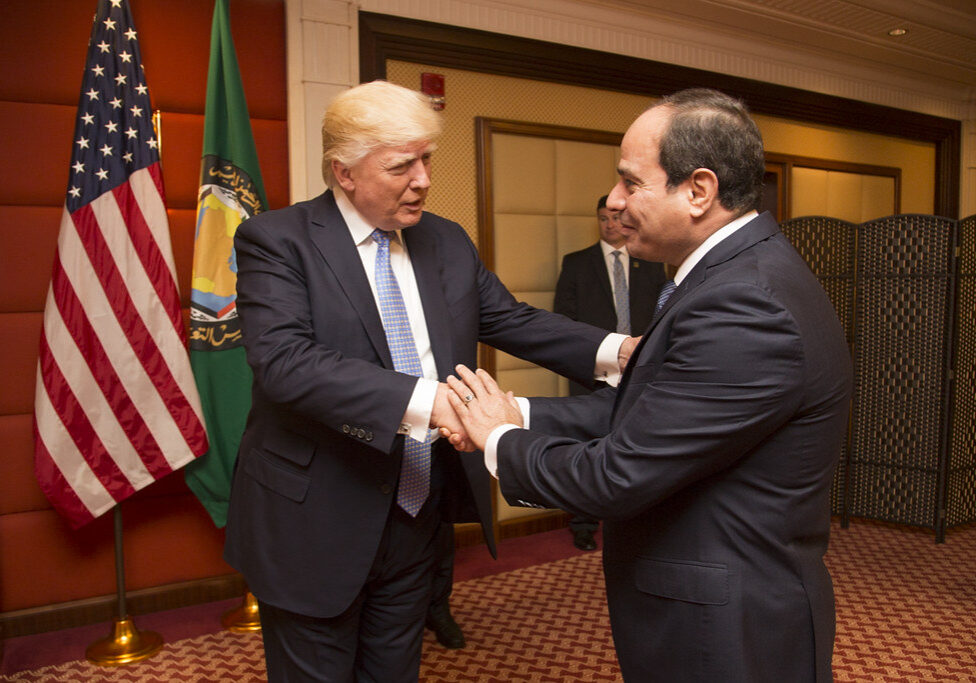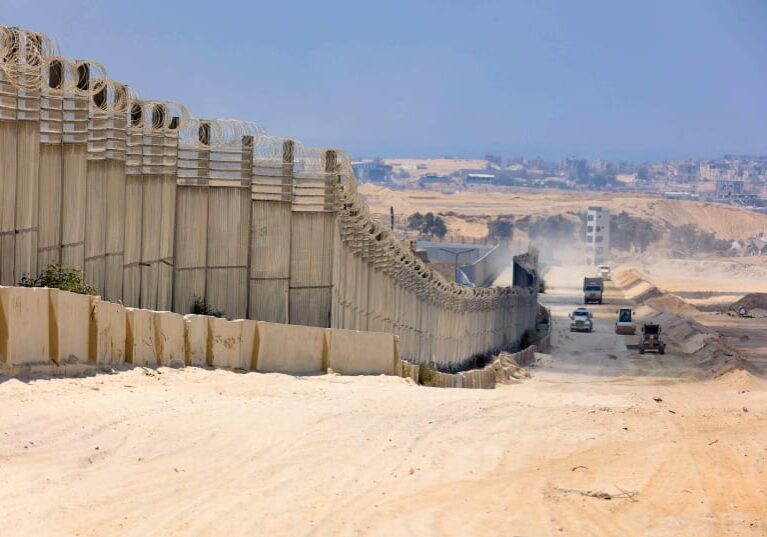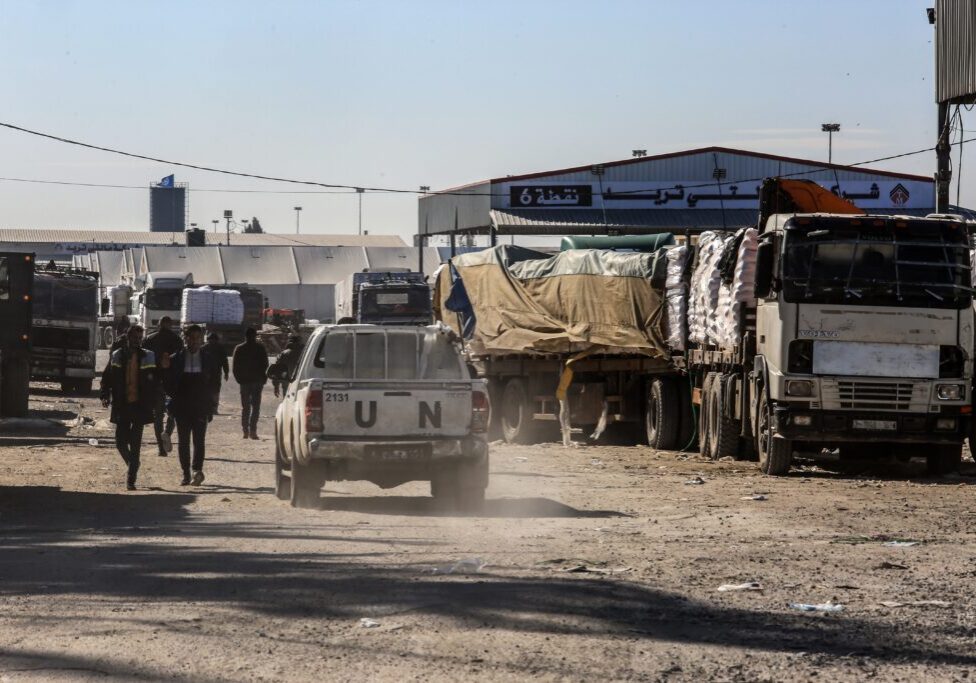Australia/Israel Review
Liberal Egypt’s Fall
Dec 20, 2011 | Amr Bargisi & Samuel Tadros

Amr Bargisi & Samuel Tadros
When the Egyptian revolution came, we stayed home. We are young, liberal Egyptian activists who have dedicated our lives to bettering our country. But from the moment in January the crowds took over Tahrir Square calling for President Hosni Mubarak’s ouster, we urged observers, particularly Western idealists already hailing the triumph of the new Egypt, to be cautious. We reminded them of Edmund Burke’s truism: Bringing down a tyrant is far, far easier than forming a free government.
It would be difficult to form such a government, we reasoned, in a society where the elite, with near unanimity, had just explained a series of shark attacks in the Sinai as part of a Mossad-coordinated ploy to damage tourism. A free government must be based on universal rights, not least the right to freedom of conscience for all its citizens, and yet a Pew poll from December 2010 showed that 84% of the sampled Egyptian Muslims endorsed the death penalty as the appropriate punishment for Muslim apostates. For an entire country to change in one month, we argued throughout February, you need nothing short of magic.
Pessimists, naysayers, wet blankets, Mubarak cronies, apologists for the regime – we were called all these names, despite the fact that we’ve spent our adult lives within the opposition. Here was a new generation armed with iPhones and Twitter accounts that would ensure the success of liberal democracy in the region’s largest state, the enthusiasts promised. When Mubarak finally bowed to the pressure of the protesters in the streets, commentators wrote fairytale endings to the Egypt story, rushing off to cover the next blossoming flower of the Arab Spring. In the months that followed, no matter how far the Egyptian economy plummeted, how badly the security situation on the border with Israel deteriorated, or how many were killed in criminal, sectarian, or political violence, the narrative was maintained: Though painful, these were the necessary labour pangs of democracy.
Last week, the moment of truth finally came – or so we hope – with the results of the first phase of parliamentary elections. The Islamist parties won big: 40% of the electorate voted for the Muslim Brotherhood, and another 25% went for the Salafists, hardline Islamists. Though forced by law to nominate at least one woman on their party lists, the Salafists had the photos of their female candidates replaced by a pictures of flowers in campaign ads, because they believe a woman’s face should not be shown publicly. The closest runner-up was the self-styled “liberal” Egyptian Bloc, which got 15% of the vote only because it secured the support of the Coptic minority. (The bloc’s founder is a famous Christian businessman.) The Islamist parties will likely win even bigger in the next two phases of the election, scheduled to take place in the coming few weeks, because these votes will be held almost entirely in the countryside, where political Islam dominates. (The first phase also included urban districts, where non-Islamists perform better.)
For us, nothing is more painful than being correct. Our vindication comes at the price of our country’s potential collapse into Islamist totalitarianism, or, even worse, total chaos. We desperately need a combination of sobriety, urgency, and prudence to prevent that from happening.
We must begin by deconstructing the Tahrir mythology. Namely: The Mubarak regime was pure evil; that it was brought down by “liberal” non-violent activists; and that the Islamists had nothing to do with the revolution and emerged – suddenly – only to hijack it.
The Mubarak regime was no liberal democracy, but it also wasn’t the Gulag. It was an ageing authoritarian regime that had opted for a path of economic reform when Ahmed Nazif took over as Prime Minister in 2004, but miserably failed to cope with the changes economic reform had on the political level. Moderately freer markets meant more media, which meant that while the political repression and corruption of the regime were less heinous than in the past, they were getting more exposure than ever. This, along with Mubarak’s senility and nepotism, created an ever-increasing sense of outrage among Egypt’s growing middle class.
While living standards were improving substantially, Egyptians not only had higher expectations of the government, but they also were falling prey to an obsessed belief that corruption is the root of all evil. Corruption has always been present in the modern Egyptian state, as anyone who has read Tawfik El Hakim’s 1932 novel The Diary of a Prosecutor Among Peasants knows. But with the help of many of the country’s journalists, this obsession was translated into outright hostility to free-market policies.
Terms like “businessman” or “privatisation” became almost libellous. This marked the rise of a Jacobin discourse on “social justice” (adala Igtima’iya), creating a lot of buzz around labour movements and Occupy Wall Street-type leftist groups. It escaped Western observers that in a country with the lowest price of bread in the world – the result of enormous government subsidies – the loudest chant in Tahrir Square was “Bread, Freedom, Social Justice.”
The early Tahrir Square crowd was comprised of leftists and various other groups that were in it for different reasons. Consider, for example, the fanatic soccer fans known as the Ultras. Known for engaging in fights with security forces after every Egyptian soccer game, the Ultras would not waste a chance to get back at the police in a much less controlled environment than the stadium. At Tahrir, they had a major role in attacking the police and destroying the police stations. In the revolution’s aftermath, the Ultras led the mob in the rampage of the Israeli Embassy.
Other than the fact that a few dozen human rights activists were present in Tahrir, there was nothing remotely liberal about the uprising. But that didn’t stop Western journalists from applying the term: Every Egyptian male without a beard was a John Stuart Mill, every female without a veil a Mary Wollstonecraft. Suddenly, Trotskyites were liberals, and hooligans non-violent protesters.
The idea that there were no Islamists involved in the revolution is pure nonsense. The Muslim Brotherhood officially declared its decision to join the protests on January 23, and its members were instrumental in the success of the revolution in the subsequent days and weeks. What’s more, over the past decade Islamist groups, particularly the Salafists, have been taking advantage of Egypt’s increasing media and Internet freedom to further influence the political discussion. Wondering where all these Salafists came from? Go to YouTube, type in any possible Arabic term, from financial investment to marriage counselling, and see the sheer number of results that show a Salafist leader preaching, most often in a clip from the religious satellite channel. The message is always the same: A return to a purer form of Islam guarantees salvation in this life and the next.
These two tendencies – the Jacobin and the Islamist – are not mutually exclusive in Egypt. The average Egyptian easily bought into both arguments, believing that the reason for all their ills was the Mubarak regime’s economic program, and that the only solution was a return to the golden age of Islam. Though institutionally immunised against Islamism through a strict system of surveillance, the military completely internalised the popular anti-capitalist discourse, hence its ultimate decision to offer its services to the revolutionaries, abandoning Mubarak in his time of need.
Into that mix comes antisemitism. Egyptian antisemitism is not simply a form of bigotry: It is the glue binding the otherwise incoherent ideological blend, the common denominator among disparate parties. The Zionist conspiracy theory was not merely a diversion applied by the Mubarak regime, as some suggest. It is a well-established social belief in Egypt, even among self-proclaimed liberals. Consider, for example, Yehya El-Gamal, a leading expert on constitutional law and chairman of the Democratic Front Party, who was appointed Deputy Prime Minister after the revolution. Though a staunch opponent of the Islamists, El-Gamal told al-Ahram, the leading state-owned newspaper, that “Israel and the US are behind flaming the sectarian conflict in Egypt” in the wake of the deadly clashes between Coptic demonstrators and military forces last October.
These facts, though hard to swallow, were clear well before the revolution. This is why, when we joined the Egyptian Union of Liberal Youth in 2009, we decided to focus our energy on a long-term program to build a genuine liberal movement from scratch. We realised early on that activism without serious, concrete ideas capable of winning the hearts and minds of our fellow Egyptians would be meaningless. Thus, we designed a platform of legal, economic, and social programs tackling all aspects of life in Egypt, from taxes to antisemitism. Our plan comprises research, lobbying, campaigning, and an effort to translate the great books of Western classical liberalism into Arabic. If Egypt was going to have any hope of becoming a liberal democracy, we had to face – and battle – the destructive totalitarian ideals that have taken hold of Egyptian society.
To begin a serious discussion on what can be done in our country, Egyptians must acknowledge that the Tahrir uprising was no liberal revolution. Western observers must realise that this is not a stark morality play, but political decision-making between alternatives that are all bad. As the government borders on bankruptcy and the security situation deteriorates (the natural-gas pipe line to Israel and Jordan has been bombed nine times since February), the first priority should be defending the very existence of the Egyptian state, now solely represented by the military. This is certainly an awkward position for advocates of limited government, as we are. But if the military falls, nothing will stand between the Egyptians and absolute anarchy.
Western policymakers and Egyptians who care about the country’s future should not push too hard for a total face-off between the military and the Islamists, which may develop into a civil war, nor should they seek to weaken the military to the extent that it is totally subdued by the Islamists. Finally, as the Islamists try to transform the legal and economic infrastructure of the country to their benefit, true liberals must be prepared to tackle them on every move, with detailed and convincing programs, not merely rhetorical speeches and empty polemics on talk shows. Islamism offers a coherent worldview; if liberalism cannot rise up to the same level, it will always be doomed to fail.
The gravest danger is for us to fall prey to complacency and believe that an Islamist government will either moderate or fail to deliver, and that the Egyptians will vote for someone else in the next elections. The very possibility of next elections is dependent on our capacity to avoid the total anarchy scenario. And the Islamists are not going to moderate. No matter how pragmatic the Muslim Brotherhood is, they will face a constant challenge by Salafists from the right to adhere a strict standard of religious purity. If the Islamists, now hugely popular, do fail to deliver, genuine liberals must be at the ready to offer voters a clear alternative. The Mubarak regime was remarkably successful in steering the economy in its latter years, but its inability to justify its existence politically led to its demise. There is no reason why the exact opposite – a failing economy but successful politics – cannot come to the service of the Islamists.
Amr Bargisi is the Albert Einstein Fellow at the Einstein Forum in Potsdam, Germany. Samuel Tadros is a research fellow at the Hudson Institute’s Centre for Religious Freedom. Both are senior partners in the Egyptian Union of Liberal Youth. © Tablet magazine, reprinted by permission, all rights reserved.
Tags: Egypt






